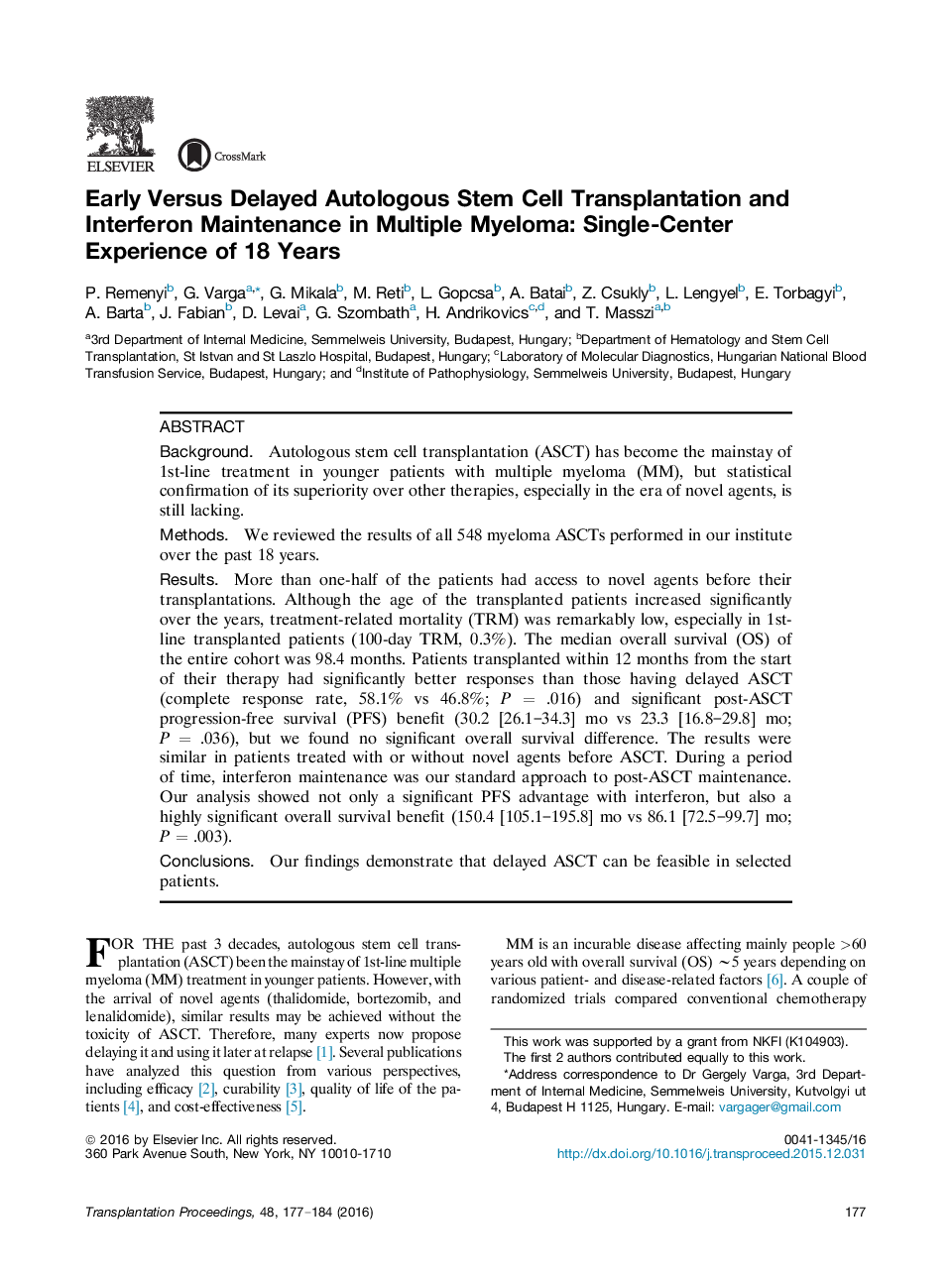| Article ID | Journal | Published Year | Pages | File Type |
|---|---|---|---|---|
| 6247065 | Transplantation Proceedings | 2016 | 8 Pages |
â¢Our results show that progression-free survival is significantly longer after early than after delayed autologous stem cell transplantation (ASCT) in multiple myeloma.â¢We found no difference in overall survival between early and delayed ASCT.â¢Patients treated with interferon maintenance benefited in both progression-free and overall survival.â¢Our findings demonstrate that delayed ASCT can be feasible in selected patients.
BackgroundAutologous stem cell transplantation (ASCT) has become the mainstay of 1st-line treatment in younger patients with multiple myeloma (MM), but statistical confirmation of its superiority over other therapies, especially in the era of novel agents, is still lacking.MethodsWe reviewed the results of all 548 myeloma ASCTs performed in our institute over the past 18 years.ResultsMore than one-half of the patients had access to novel agents before their transplantations. Although the age of the transplanted patients increased significantly over the years, treatment-related mortality (TRM) was remarkably low, especially in 1st-line transplanted patients (100-day TRM, 0.3%). The median overall survival (OS) of the entire cohort was 98.4 months. Patients transplanted within 12 months from the start of their therapy had significantly better responses than those having delayed ASCT (complete response rate, 58.1% vs 46.8%; PÂ = .016) and significant post-ASCT progression-free survival (PFS) benefit (30.2 [26.1-34.3] mo vs 23.3 [16.8-29.8] mo; PÂ =Â .036), but we found no significant overall survival difference. The results were similar in patients treated with or without novel agents before ASCT. During a period of time, interferon maintenance was our standard approach to post-ASCT maintenance. Our analysis showed not only a significant PFS advantage with interferon, but also a highly significant overall survival benefit (150.4 [105.1-195.8] mo vs 86.1 [72.5-99.7] mo; PÂ = .003).ConclusionsOur findings demonstrate that delayed ASCT can be feasible in selected patients.
